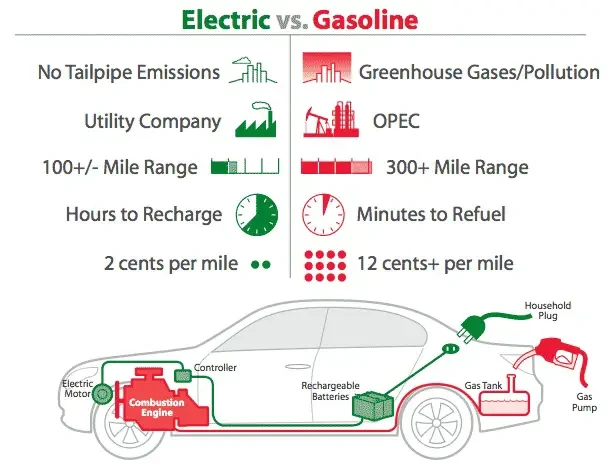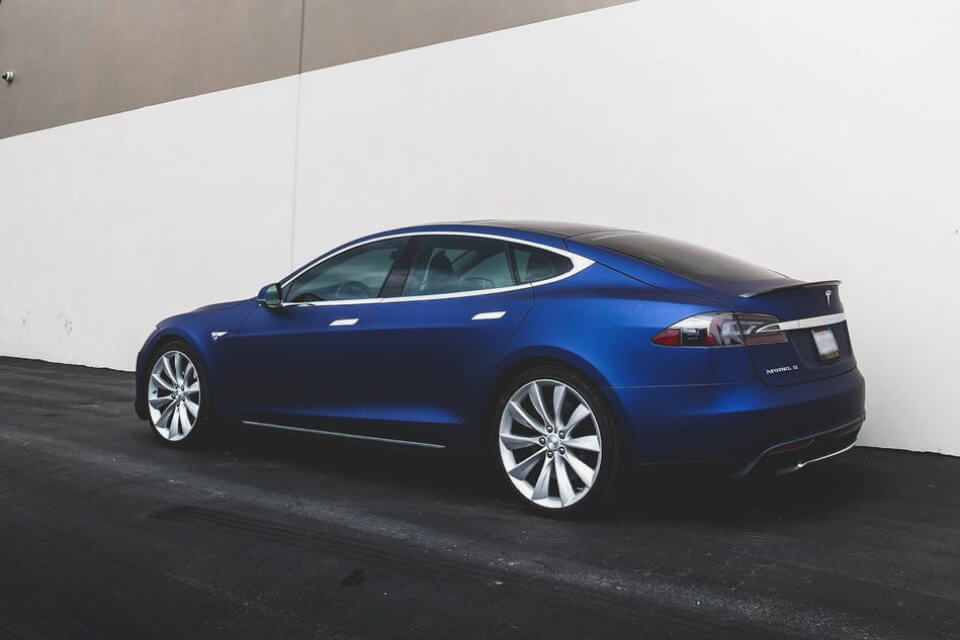Electric vs. Gasoline: Which is Right for You? This is a question that many people are asking as they consider their options for transportation. With the rise of electric vehicles (EVs) and the continued popularity of gasoline-powered cars, it can be difficult to determine which type of vehicle is the best fit for your lifestyle and needs. There are several factors to consider when making this decision, including cost, environmental impact, and convenience. In this article, we will explore the differences between electric and gasoline vehicles to help you make an informed choice.
When it comes to choosing between electric and gasoline vehicles, one of the most important factors to consider is the cost. Electric vehicles often have a higher upfront cost than gasoline-powered cars, but they can be more cost-effective in the long run due to lower fuel and maintenance costs. Additionally, electric vehicles may qualify for tax incentives and rebates, which can help offset the initial purchase price. On the other hand, gasoline cars may have a lower initial cost, but fuel and maintenance expenses can add up over time. Another important consideration is the environmental impact of each type of vehicle. Electric vehicles produce zero tailpipe emissions, making them a cleaner and more sustainable option for environmentally conscious consumers. Gasoline cars, on the other hand, emit harmful pollutants and contribute to air and noise pollution. As the world continues to focus on reducing carbon emissions and combating climate change, the environmental benefits of electric vehicles are becoming increasingly important. Ultimately, the decision between electric and gasoline vehicles depends on your individual needs, preferences, and values. Whether you prioritize cost savings, environmental sustainability, or convenience, there is a vehicle option that is right for you.
Cost Comparison
When it comes to cost, electric vehicles (EVs) and gasoline vehicles have different expense structures. Electric vehicles tend to have a higher upfront cost, but they can be cheaper to fuel and maintain in the long run. On the other hand, gasoline vehicles have a lower initial cost, but they require more spending on fuel and maintenance over time. It’s important to consider your budget and long-term financial goals when deciding between the two options.
Additionally, government incentives and tax credits may also affect the overall cost of owning an electric or gasoline vehicle. In some regions, EV owners can benefit from tax incentives, rebates, and reduced registration fees, making the initial cost difference more manageable. It’s crucial to research and compare the available incentives in your area before making a decision.
Environmental Impact
When it comes to environmental impact, electric vehicles are generally considered to be more eco-friendly than gasoline vehicles. EVs produce zero tailpipe emissions, which can help reduce air pollution and greenhouse gas emissions. On the other hand, gasoline vehicles emit pollutants and greenhouse gases during operation, contributing to environmental degradation and climate change. By choosing an electric vehicle, you can reduce your carbon footprint and contribute to a cleaner, healthier planet.
It’s important to note that the environmental benefits of electric vehicles also depend on the source of electricity used for charging. If the electricity in your area is generated from renewable sources such as wind or solar power, the environmental impact of an electric vehicle can be even more significant. Consider the source of electricity in your region when evaluating the environmental implications of your vehicle choice.
Charging Infrastructure
One of the key considerations when choosing between an electric and gasoline vehicle is the availability of charging infrastructure. Electric vehicles need to be recharged regularly, so access to charging stations is crucial for EV owners. In recent years, the charging infrastructure for electric vehicles has been expanding, with more public charging stations and home charging options becoming available. However, the availability of charging stations can still vary depending on your location, which is an important factor to consider, especially for those who travel long distances frequently.
On the other hand, gasoline vehicles can be refueled at the numerous gas stations found in most areas, providing a high level of convenience and accessibility. If you rely on your vehicle for long trips or live in an area with limited access to charging stations, a gasoline vehicle may be a more practical choice for your lifestyle.
Driving Range
Another factor to consider is the driving range of electric vehicles compared to gasoline vehicles. Electric vehicles have made significant advancements in their driving range in recent years, with many models offering ranges that can meet the needs of the average driver. However, some electric vehicles may still have limitations when it comes to long-distance travel and may require more planning for recharging stops during road trips.
Gasoline vehicles, on the other hand, have well-established driving ranges and can be refueled quickly at gas stations, allowing for more flexibility in long-distance travel. If you frequently travel long distances or live in an area with limited charging infrastructure, a gasoline vehicle may be a more suitable option for your driving needs.
Performance and Power
When it comes to performance and power, electric vehicles often offer quick acceleration and a smooth, quiet ride due to their electric motors. Electric vehicles deliver instant torque, providing a responsive and enjoyable driving experience. Additionally, EVs have a lower center of gravity, which can contribute to better handling and stability on the road.
Gasoline vehicles, on the other hand, are known for their high-speed capabilities and long-distance cruising abilities. For those who prioritize raw power and traditional driving dynamics, a gasoline vehicle may be the preferred choice. Gasoline vehicles also have a well-established infrastructure for performance modifications and aftermarket enhancements, allowing enthusiasts to customize their driving experience to a greater extent.
Maintenance and Repairs
Electric vehicles generally have fewer moving parts and less complex systems compared to gasoline vehicles, resulting in lower maintenance and repair needs. EVs do not require oil changes, and their regenerative braking systems can help preserve the lifespan of brake components. As a result, electric vehicle owners may spend less on routine maintenance and repairs over time.
Gasoline vehicles, on the other hand, require regular maintenance such as oil changes, air filter replacements, and spark plug inspections. Additionally, the internal combustion engine and its associated components may be more prone to wear and tear, leading to potentially higher long-term maintenance costs. If you prioritize minimal maintenance and potential cost savings in the long run, an electric vehicle may be the more favorable choice for you.
Resale Value
When it comes to resale value, electric vehicles and gasoline vehicles may have different market dynamics. Electric vehicles are a relatively newer technology, and their resale values may be influenced by factors such as battery degradation and advancements in electric vehicle technology. However, as the demand for electric vehicles continues to grow and battery technology improves, the resale value of EVs is expected to become more competitive with gasoline vehicles over time.
Gasoline vehicles, on the other hand, have a well-established resale market, and their values may be influenced by factors such as mileage, maintenance history, and overall condition. If you prioritize strong resale value and predictable market dynamics, a gasoline vehicle may be the more reassuring choice for your long-term ownership considerations.
Convenience and Lifestyle
Electric vehicles offer the convenience of home charging, allowing owners to refuel their vehicles overnight without needing to visit a gas station. This can be especially advantageous for individuals with a garage or dedicated parking space where a home charging station can be installed. Additionally, the quiet and smooth operation of electric vehicles can contribute to a more serene driving experience, particularly in urban environments.
Gasoline vehicles provide the convenience of a well-established refueling infrastructure, allowing drivers to quickly fill up their tanks at numerous gas stations. For those who are accustomed to the existing gas station network and prioritize the ability to refuel on the go, a gasoline vehicle may align better with their lifestyle and driving habits.
| Factor | Electric | Gasoline |
|---|---|---|
| Cost | Lower fuel and maintenance costs | Higher fuel and maintenance costs |
| Environmental impact | Zero emissions | Emits greenhouse gases |
| Charging/Refueling time | Longer charging time | Quick refueling time |
| Range | Limited range per charge | Longer driving range |
| Performance | Instant torque and smooth acceleration | Traditional engine power |



